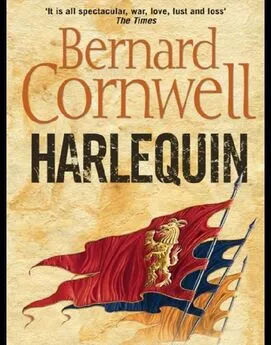Bernard Cornwell - Stonehenge
- Название:Stonehenge
- Автор:
- Жанр:
- Издательство:неизвестно
- Год:неизвестен
- ISBN:нет данных
- Рейтинг:
- Избранное:Добавить в избранное
-
Отзывы:
-
Ваша оценка:
Bernard Cornwell - Stonehenge краткое содержание
Bernard Cornwell's new novel, following the enormous success of his Arthurian trilogy (The Winter King, Enemy of God, and Excalibur) is the tale of three brothers and of their rivalry that creates the great temple. One summer's day, a stranger carrying great wealth in gold comes to the settlement of Ratharryn. He dies in the old temple. The people assume that the gold is a gift from the gods. But the mysterious treasure causes great dissension, both without from tribal rivalry, and within. The three sons of Ratharryn's chief each perceive the great gift in a different way. The eldest, Lengar, the warrior, harnesses his murderous ambition to be a ruler and take great power for his tribe. Camaban, the second and an outcast from the tribe, becomes a great visionary and feared wise man, and it is his vision that will force the youngest brother, Saban, to create the great temple on the green hill where the gods will appear on earth. It is Saban who is the builder, the leader and the man of peace. It is his love for a sorceress whose powers rival those of Camaban and for Aurenna, the sun bride whose destiny is to die for the gods, that finally brings the rivalries of the brothers to a head. But it is also his skills that will build the vast temple, a place for the gods certainly but also a place that will confirm for ever the supreme power of the tribe that built it. And in the end, when the temple is complete, Saban must choose between the gods and his family. Stonehenge is Britain's greatest prehistoric monument, a symbol of history; a building, created 4 millenia ago, which still provokes awe and mystery. Stonehenge A novel of 2000 BC is first and foremost a great historical novel. Bernard Cornwell is well known and admired for the realism and imagination with which he brings an earlier world to life. And here he uses all these skills to create the world of primitive Britain and to solve the mysteries of who built Stonehenge and why. 'A circle of chalk, a ring of stone, and a house of arches to call the far gods home'
Stonehenge - читать онлайн бесплатно ознакомительный отрывок
Интервал:
Закладка:
Next day Saban picked woad from a hillside and Aurenna infused it in water and, when the dye was ready, she placed a second killing tattoo on Saban's chest. She hammered the marks in with a comb, driving the dye deep, and while she worked Saban told her all that had happened in Sul and how he had taken Jegar's head to Derrewyn. Afterwards, while the blood dried on his chest, he and Aurenna sat by the river and she fingered the nutshell. 'Tell me about Derrewyn,' she said.
'She is thin now,' Saban said, 'and bitter.'
'Who can blame her?' Aurenna asked. She frowned at the nutshell. 'I don't like it. Loosing a curse can hurt the person who releases it.'
'It might keep me alive,' Saban said, taking it from her. 'I shall keep it till Lengar dies, then bury it.' He hung it about his neck. He dared not show it to Camaban for he feared his brother might use the charm to hurt Derrewyn, and so he kept it hidden. He also feared that Camaban would question him about his journey to Cathallo and call him a fool for having made it, but Camaban was preoccupied with finding a trader who could carry him to the island across the western sea. He eventually found some men who were making the voyage with a cargo of flints and so Camaban left Sarmennyn.
'I shall learn their priests' secrets,' he told Saban, 'and come back when it is time.'
'When is that?'
'Whenever I come back, of course,' Camaban said, stepping into the boat. One of the traders handed him a paddle, but Camaban contemptuously swatted it aside. 'I don't paddle,' he said, 'I sit and you paddle. Now take me.' He gripped the boat's gunwales and was carried downstream to the sea.
Ten boats for carrying the temple's pillars were now ready, all of them triple-hulled and tight-lashed, and they were towed upstream to where long grass grew around the growing piles of temple stones. The smaller stones, those about the height of a man, could be loaded two to a boat, but the largest needed a boat to themselves and Saban began by loading one of those huge boulders. At high tide one of the boats was hauled in to the river's edge and its stern was tied firmly to the bank. Saban levered up one end of the boulder, which still rested on its sledge, and slid a beam beneath it. He levered up the other end so three more beams could be placed under the stone, then forty men grasped the beams, heaved up and staggered towards the boat. The men had only a few paces to carry the vast weight, yet they became nervous when they stepped into the water and a dozen more men were needed to steady the stone. The men sweated, but inched onwards until the great stone was poised above the square timbers that spanned the three hulls. They lowered the stone and the boat settled so deep in the water that one hull grounded on the river-bed. Lewydd and a dozen men tugged the boat free and Saban saw how little freeboard the hull had, but Lewydd reckoned they would survive the journey to Ratharryn if Malkin, the weather god, was kind. He and a dozen men boarded the boat and paddled it downriver, followed on the bank by a horde of excited men.
It took three days to load the ten boats. Five of the craft carried large stones while the other five had a pair of smaller stones apiece, and once the stones were lashed to their beams the boats were all floated downstream. There were two places where the river ran shallow and men had to haul the boats across those places as though they were sledges, but in two days all the boats were safe at Aurenna's settlement where they were tethered to trees. At low tide the great hulls rested in the mud while at high they floated free to tug restlessly at their moorings.
They were waiting for the weather. It was already late in the summer, but Lewydd prayed at Malkin's shrine each morning then climbed the hills behind the settlement to peer westwards. He was waiting for the wind to die and the sea to settle, but the wind seemed relentless in those late summer days and the grey waves roared endlessly from the west to shatter white on the rocky coast.
The harvest was cut and then the rains started, blasting from the ocean in teeming downpours so that Saban had to empty the moored boats of rainwater every day. The skies stayed dark and he began to despair of ever moving the stones, but Lewydd never abandoned hope and his optimism was justified for one morning Saban woke to a strange calm. The day was warm, the winds had settled and the fishermen reckoned the fine weather would last. It often happened like this, they said, that, late in the year, just before the autumn brought howling gales, Malkin would send long days of blissful calm and so the ten boats were loaded with skins of fresh water and sacks of dried fish and baskets of the flat bread that was made on hot stones, and then Scathel splashed each boat with the blood of a freshly killed bullock and, at midday, with a dozen paddlers manning each craft, the first of the temple's stones went to sea.
There were plenty of men in the tribe who said the crews would never be seen again. In the heft of the sea, they claimed, the boats would swamp and the weight of the stones would drag them down to where the grey monsters of the deep waited. Saban and Aurenna walked to the coast and watched the ten boats, escorted by two slim fishing craft, turn around the headland and paddle out to sea. The pessimists were wrong. The ten boats rode the small waves easily and then the leather sails were hoisted above the stones, the paddles dug deep, and the small fleet rode the gentle wind and long tide eastwards.
Now all Saban could do was wait for Lewydd's return. He waited as the days shortened and as the wind rose and the air turned chill. Some days Saban and Aurenna would walk to the southern headland from where they would stare from the cliff's top to search for Lewydd's boats, but though they could see fishing boats with men standing and throwing their small nets, and though they saw plenty of traders' boats loaded with goods, they saw none of the triple-hulled boats that had carried the stones. Day by day the wind drove the sea harder, smashing water white on rock and lashing the wave crests to foam, and still Lewydd did not return. There were days when the fishermen would not go out because the water and the wind were too angry and on those days Saban feared for Lewydd.
The first frost came and after that the first snow. Aurenna was pregnant again and some mornings she woke weeping, though she always denied that her tears were for Lewydd. 'He lives,' she insisted, 'he lives.'
'Then why are you crying?'
'Because it is winter,' she said, 'and Erek dies in the winter and I am so close to him that I feel his pain.' She flinched when Saban touched her cheek. There were times when he felt she was distancing herself from him, moving closer to Erek. She would sit on her stone beside the river, her hands outstretched on either side, and claim to be listening to her god, and Saban, who heard no voices in his head, was jealous.
'Spring will come,' he said.
'As always,' Aurenna said and turned away.
Saban and Mereth made more boats. They found the last big oaks in the nearer forests and from those trunks they could make just five more craft. If Lewydd returned and brought his boats with him they would have fifteen boats, and fifteen boats could carry all the stones eastward in four voyages. But if Lewydd did not return then the temple could not be moved and, as day followed day, and as winter's grip locked the land hard, there was neither news nor sight of Lewydd.
Lewydd's long absence began to unsettle the folk of Sarmennyn. Rumours spread. One story claimed that the ten boats had foundered and their crews had been drowned, dragged down by the stones because Erek did not want them moved. Other folk claimed that Lewydd and his men had been slaughtered by the folk of Drewenna who, instead of providing the sledges as their new chief had promised after the massacre at Sul, had decided to take the stones for themselves. The rumours fed on themselves and, for the first time since Aurenna had walked from the fire, there were murmurs that Camaban and Kereval were wrong. Haragg tried to keep the tribe's faith, but more and more folk muttered that the temple should never have been given away. Over a hundred of the tribe's young men were gone with the boats and the tribe feared they would never see those men again. They had left widows and orphans, they had left Sarmennyn dangerously weak in spearmen, and because so many of the missing were fishermen, it meant there would be hunger in Sarmennyn that winter, and it was all the fault of those who had said the temple should be moved. Scathel, Haragg and Kereval tried to stanch the anger, advising the people to wait for news, but still the rumours flourished and turned to a sudden rage one winter evening when a crowd of resentful folk left Kereval's settlement and crossed the river with burning torches to walk south to Aurenna's settlement.
Scathel took a boat down the river to warn Saban that men were coming to burn the settlement and destroy the new boats. Kereval had tried to stop them, the high priest said, but Kereval was ailing and his authority was weakening.
Haragg spat angrily. 'Who leads them?' he asked his brother. Scathel named some of the men who were coming and Haragg shook with anger. 'They are worms,' he said derisively, and seized a spear.
'Let me talk to them,' Saban said.
'Talking won't stop them,' Haragg retorted as he stalked down the path, spear in hand. Cagan went with him. Saban ordered Mereth to take the women of the settlement into the trees then he ran after Haragg, catching the huge man just as he confronted the firelit crowd on the narrow forest path. Haragg lifted his spear. 'You are fighting against Erek,' he shouted, but before he could say another word an arrow whipped from the crowd to strike his chest and Haragg staggered back to fall against an oak. Cagan bellowed in distress, plucked up his father's spear and charged at the crowd. He was met by more arrows and a shower of stones, but the arrows might as well have been loosed at an aurochs. The giant deaf-mute flailed the spear clumsily, driving men back, and Saban ran to help him, but then Cagan was tripped; he fell, and the crowd surged over the huge man and their spears were rising and falling as he writhed beneath the blades. Saban seized Haragg's arm, hauled the trader to his feet and dragged him away so he would not see his son's death. 'Cagan!' Haragg called.
'Run!' Saban shouted. An arrow hissed past his ear and another thumped into a tree.
The crowd was following, their blood roused by Cagan's death. A spear was thrown and it skidded along the path, nearly striking Saban's ankle, then he saw Aurenna standing in the path's centre. 'Go back!' Saban shouted at her, but she waved him aside. Her golden hair hung free and her deerskin tunic swelled over her pregnant belly. 'Go!' Saban said. 'They've killed Cagan. Go!' He tried to pull her away, but Aurenna shook off his hand, refusing to be moved. She waited calmly, as placid as she had been when she had waited to endure the sun-bride's fire, and then, when the rampaging crowd came into sight, she walked slowly forward to meet them.
She did not raise her hands, she did not speak, but just stood there and the attackers checked. They had killed a man, but now they were faced by a bride of Erek, a woman who was either a goddess or a sorceress, a woman of power, and none had the courage to attack her, though one man did step out of the crowd to confront her. His name was Kargan and he was a nephew of Kereval and a famous warrior in Sarmennyn. He wore ravens' wings in his hair and had ravens' feathers tied to the shaft of his spear which was longer and heavier than any other in Sarmennyn. He had a long jaw and brooding eyes and thick grey scars that boasted of the souls he had slaughtered in battle, but he reverently bowed his head to Aurenna. 'We have no quarrel with you, lady,' he said.
Читать дальшеИнтервал:
Закладка:


